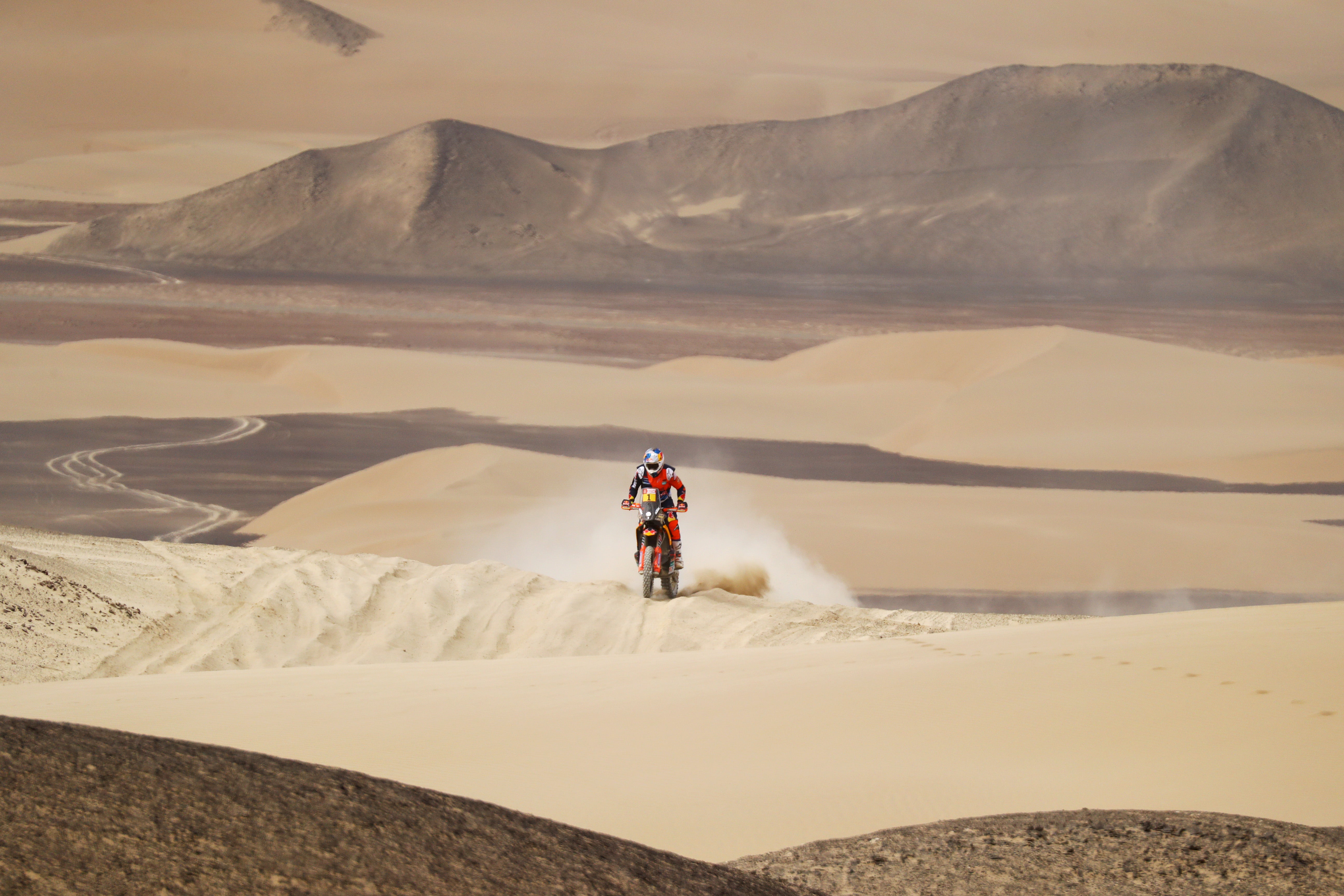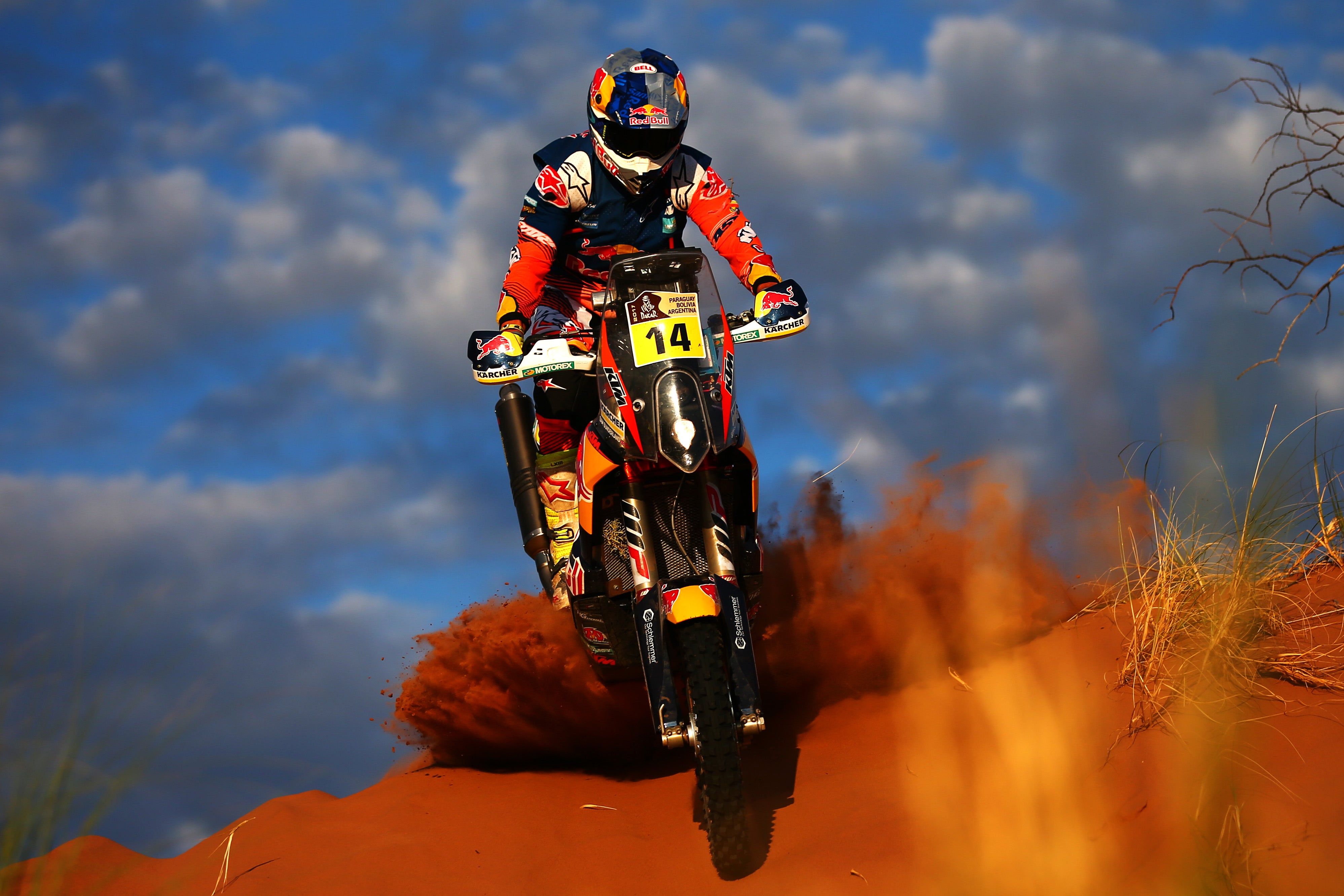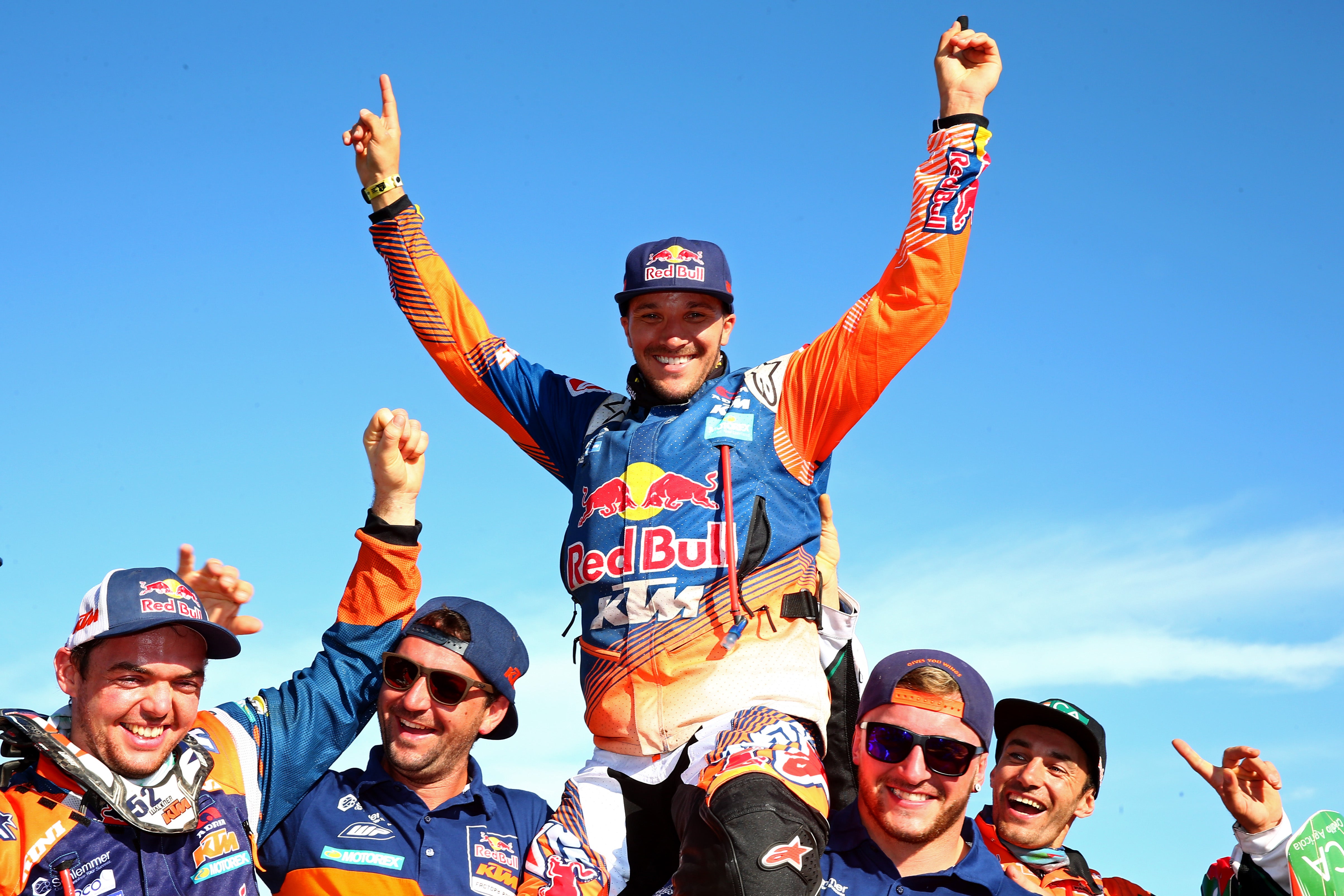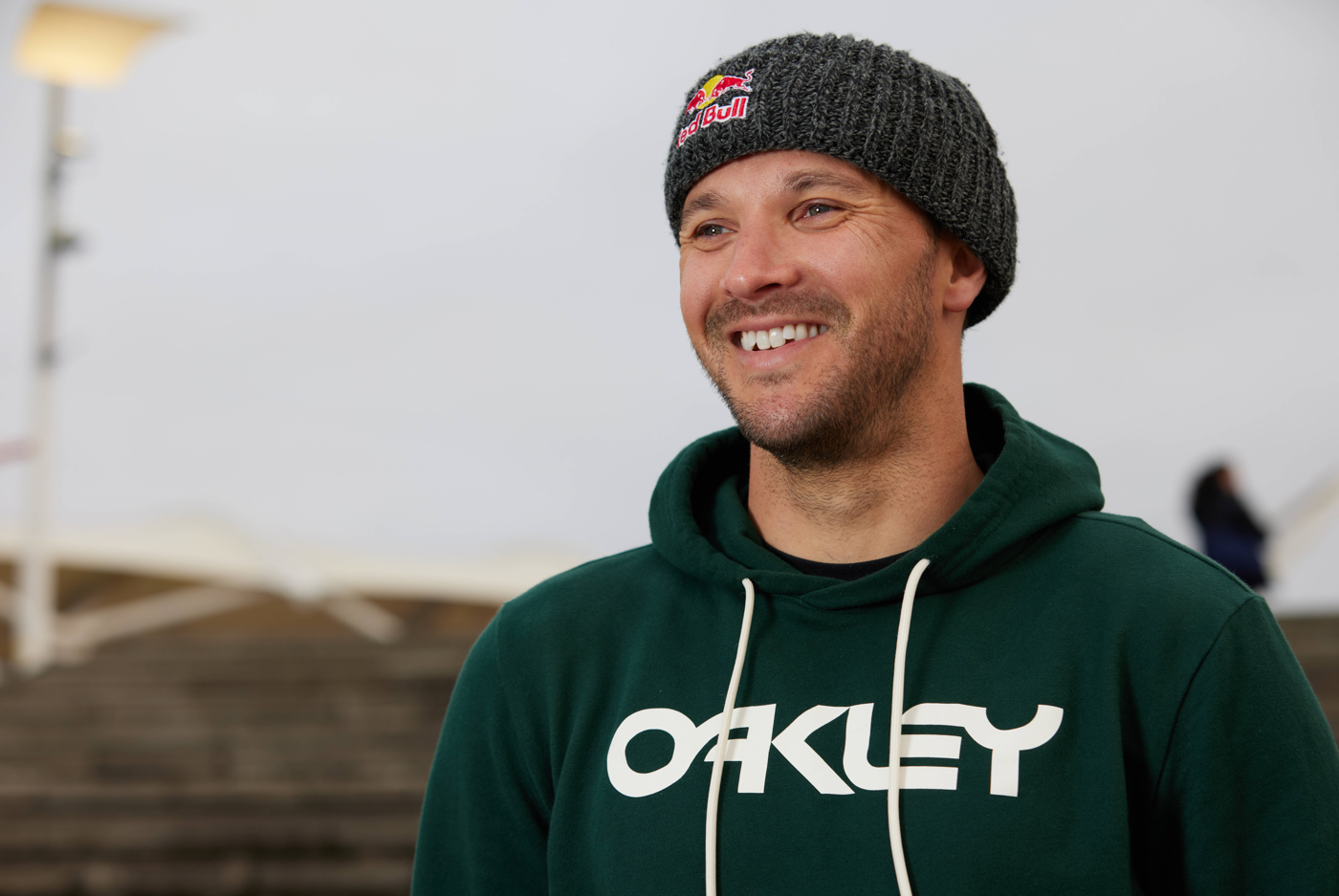What does it take to win the toughest motor race in the world?
As the most gruelling event on the motor racing calendar gets underway, Kieran Jackson meets biker Sam Sunderland, the only British athlete to ever win the Dakar Rally – and he’s done it twice


Twelve stages, 13 days, 7,891 kilometres. This year’s 47th edition of the Dakar Rally in Saudi Arabia starts today (5 January), presenting another gruelling instalment of the event commonly known in motorsport circles as the world’s toughest race. Stretching from Al-’Ula on the west coast, to the capital Riyadh and beyond to Shubaytah in the southeast, before returning to the city of Yanu, 300km north of Jeddah, the Dakar presents rally-raid drivers and bikers with the ultimate test of skill, endurance and resilience.
“For track and field, it’s the world championships or the Olympics – the Dakar Rally is my Olympics,” says Sam Sunderland, two-time winner of the event and the only British athlete to ever come home in first place.
“When you look at the distance, terrain, the number of days – it’s too big. When you get to day eight and you’ve had five hours sleep each night and you have a wake-up call at 2.30am… caffeine quickly becomes your friend. It’s your bike and your bed. I’m so caught up in what I’m doing, keeping in touch with the outside world seems impossible.”
DAKAR RALLY
What is the Dakar Rally?
It is an off-road motorsport endurance event, usually lasting two weeks, open to amateur and professional entries, with tough terrains and off-road vehicles used.
There are five categories of vehicles: motorbikes, quads, cars, lightweight vehicles and trucks.
When was the first race?
The first race was in 1978. It was cancelled in 2008 due to political tensions, returning in 2009. This year’s event is the 47th edition.
Where is it?
Since 2020, it has been held with various routes in Saudi Arabia. Before that, from 2009, it was held in South America; previous to that, most races started in Paris and finished in the Senegalese capital of Dakar.
So it’s not actually in Dakar?
Not any more. From 1979-2007, every event (bar 2003, which finished in Sharm el Sheikh) concluded or started in Dakar, usually starting in Paris or other European cities. However, fears of attacks in Mauritania following the 2007 killing of four French tourists saw the 2008 event cancelled, with terrorist acts threatening the event directly.
The race then moved to South America and is now based in Saudi, with the kingdom given a 10-year contract in 2020. So, a return to Africa looks unlikely for the foreseeable future.
Sunderland, who now races for the Red Bull GasGas team, made his Dakar debut in 2012. A rally-raid motorcycle rider, the Poole native based in Dubai reached the pinnacle of his profession with victory in South America in 2017 and Saudi in 2022.
From breaking both his legs during a motocross accident at the age of 16 and working as a lift engineer locally, his journey to the top has been fraught with obstacles to overcome; a notion which prepares him suitably for the risks and rigours of vast swathes of sandy nothingness.
“There’s so many factors that you can’t control in the Dakar,” the 34-year-old says. “It could be mechanical, a crash, an animal or even being lost in the desert. Even though you’re losing time, you need to adapt in the moment, stay calm and fix it as quickly as possible. There’s no way you can race nearly 10,000km through the desert without having some kind of drama.
“I won the race in 2022 but I had a big crash on day four. I knocked myself out, broke a ligament in my neck and destroyed my bike. I couldn’t see properly or focus and was suffering like hell. When you’re in the Dakar, you can be on your own in the middle of nowhere and things can spiral out of control very quickly. With eight days left, it took every piece of me to keep going.”
Keep going he did. A childhood spent on his BMX bike – “a freedom and adventure where you don’t have to rely on mum or dad” – prepared him for the unique challenge the Dakar presents. It takes a certain mentality to meet unforeseen challenges head-on and not only assess and conquer but thrive in such a disorderly environment.


“It’s definitely the angel and the devil,” he says. “On one hand, I have family and kids [three-year-old daughter, six-week-old son] at home, I’ve got a concussion, tired and dehydrated, and you’ve got pain everywhere. It’s just stupid.
“On the other hand, I’ve worked too hard for this. You break it down to 50km, then maybe you can do 100km. It’s hard to stay positive, but it all adds value to the event. If I brought my Dakar trophy into your living room, you’d have no emotional attachment to it. When I look at my trophy, I know what I went through to get that. You add value to things by going through hardships.
“Winning the Dakar is like a drug – you can’t get that feeling anywhere else. If I could have it in a bottle and have a drink of it each morning, I’d be a made man. It’s earned though, not given.”

Over the next fortnight, Sunderland is out to right the wrong of last year. Defending his title in 2023, he violently crashed out in the first stage, unable to continue with a broken shoulder blade. But fresh off an 11-day training camp in Barstow, California, one setback won’t stop the British history-maker attacking the scorching heat and sleepless nights with maximum effort. No matter the risk.
“Perseverance is the main attribute for it,” he says. “One crash and you can be out. Everyone knows it’s dangerous and risky but it’s only me who knows just how dangerous it is. It’s my decision to take those risks when I race.
“I suffer a lot when I’m packing my bags, leaving my family. But as soon as I’m on the plane, I’m all in. I’m not thinking about anything else. Because if you’re half-thinking about what might be… it’s already game over.”
Red Bull athlete Sam Sunderland is a rally raid biker and a two-time Dakar winner. Find out more about him here






Join our commenting forum
Join thought-provoking conversations, follow other Independent readers and see their replies
Comments